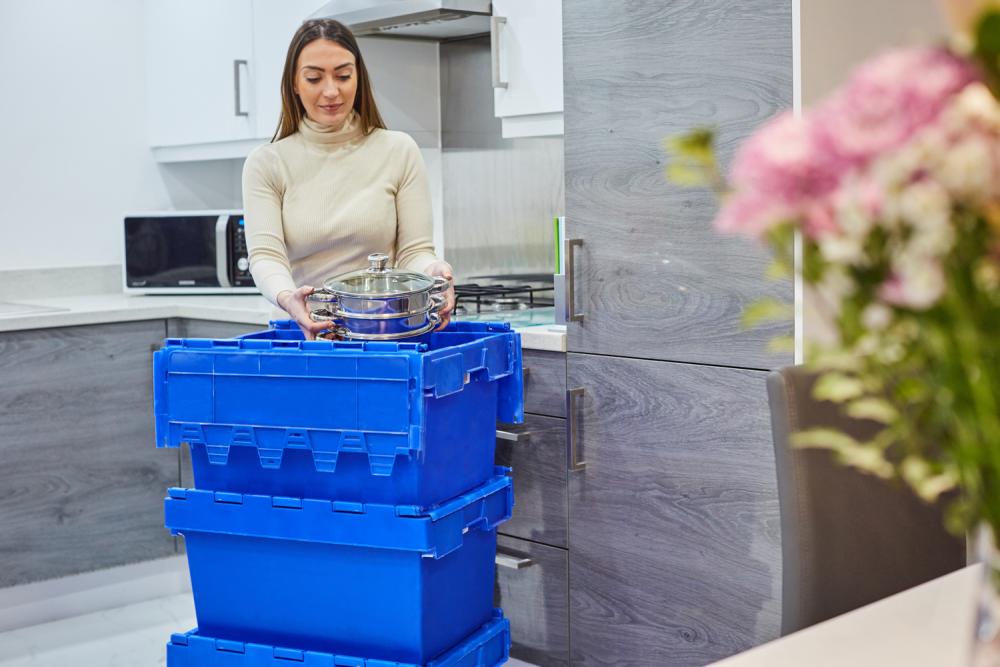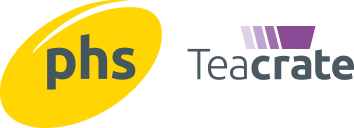Moving to a new home can be as stressful as it is exciting. Organising packing, booking removals and working through your change of address list is fairly time consuming. Finding new schools and/or new jobs can also be a challenge. The last thing you need is surprise extra costs when buying a house.
Because it’s not something that we do every day, many of us don’t realise all the costs there are to consider when buying a new home. However, according to Which? the average cost of moving home is around £12,000. These can include stamp duty, legal fees, mortgage arrangements fees and land registry fees, not forgetting that if you’re selling your existing home, you’ll also have to factor in estate agent fees.
Unfortunately, there are plenty of moving fees and hidden costs when buying a home so, to make sure you don’t have any nasty shocks, at phs Teacrate we’ve put together this guide to unexpected moving costs so you can make sure they are factored in to your budget.


Pre-Move Planning
Pre-move planning is essential for a stress free move. Start by creating a moving checklist to ensure everything is accounted for. This checklist will help you stay organised and on track throughout the moving process. Measure your furniture and belongings to determine the right size of moving boxes and packaging supplies needed. This step is crucial to avoid last minute scrambles for the right sized boxes.
Next, sort and declutter your belongings to reduce the amount of items to pack and move. This not only makes packing easier but can also save you money on moving costs. Create a moving budget and stick to it to avoid unexpected expenses. Research and hire a reputable moving company or rent a suitable moving vehicle well in advance to ensure availability.
Don’t forget to pack an essentials box with important documents, medications, and a change of clothes for each person. This box will be a lifesaver on your first night in your new home, ensuring you have everything you need without having to unpack all your boxes.
Additional costs when buying a house
Stamp Duty
If you pay over a set amount for property, you will be liable to pay a form of property tax. In England and Northern Ireland, this is known as Stamp Duty Land Tax (SDLT) and the rate is based on a percentage rate of the value of the transaction. The equivalent in Scotland is Land and Buildings Transaction Tax (LBTT), while in Wales, you must pay Land Transaction Tax (LLT). Homes up to a certain value are exempt and the rate rises the greater the property is worth.
England and Northern Ireland:
Purchase price | Stamp duty rate |
Up to £250,000:/ | Exempt |
£250,001 - £925,000 | 5% |
£925,001-£1.5m | 10% |
£1.5m+ | 12% |
Scotland:
Purchase price | Land and Buildings Transaction Tax Rate |
£145,000 or less (£175,000 for first-time buyers) | 0% |
£145,001-£250,000 | 2% |
£250,001-£325,000 | 5% |
£325,001-£750,000 | 10% |
£750,001+ | 12% |
Wales:
Purchase price | Land Transaction Tax Rate |
£225,000 or less | Exempt |
£225,001-£400,000 | 6% |
£400,001-£750,000 | 7.5% |
£750,001-£1.5m | 10% |
£1.5m+ | 12% |
Buildings insurance
This is often a pre-requisite of getting a mortgage and is also a good idea if you’re paying cash for your property as it covers the cost of rebuilding/fixing any damage to the structure. If you’re a tenant, your landlord will usually have buildings insurance covered, leaving you to deal with the building contents insurance. If the provider hasn’t been specified by the leaseholder, you should shop around for your buildings insurance to get the best quote and coverage.
Land Registry fees
When you buy a property from someone else, the Land Registry charges a fee to change the details to your name on their register. The amount of Land Registry fees you pay depends on the value of the property. For homes bought for £100,001-£200,000, the fee is around £200, rising to £300 for properties worth up to £500,000 and is paid via your solicitor on completion.
Legal fees
Conveyancing costs will be due to pay for your solicitor’s legal work involved in buying your home and will also cover various searches and administrative costs. Some of these costs will need to be paid along the process with the final fee on completion. These can be anywhere between £500 to £1,500 (including VAT) with the exact cost depending on the value of your property as well as any unforeseen problems along the way. Legal fees for buying or selling a property cannot be added to your mortgage so you’ll need to have funds to cover them.
Estate agent fees
If you sell your property through a third party, you’ll be liable for estate agent fees which are usually based on commission and agreed in advance. This will be between 1% and 3.5% of the selling price (according to Which?) plus VAT. Estate agent fees are due to the seller only so you won’t have to pay any fees to the estate agent responsible for the home you’re purchasing.
Valuation fee
Your lender will need to value your property to ensure it is worth what you are paying for it which determines how much they will lend you. Most will charge a fee for a valuation which ranges between around £150 to £1,500 depending on the value of the property.
Survey
In addition to having your home valued, it’s essential you also conduct a survey to identify any potential issues. There are a choice of surveys starting from a basic home condition survey through to a full structural survey. Accordingly, fees can vary between £500-£1,100 or more depending on your requirements and property value.
Mortgage arrangement fee
A fee is often charged by a bank, building society or other lender for setting up your mortgage, and is charged at either a set fee or percentage of your mortgage value. As a rough guide, this could range between a couple of hundred pounds to one per cent of the mortgage. Mortgage arrangement fees can be added to your mortgage total. Some lenders or brokers may also charge an additional booking fee – although some brokers won’t charge you and instead make their money via commission from the lender. Always check in advance what you’ll be liable to pay.
Electronic transfer fees
When buying a house, you need to move money quickly from your lender to your solicitor and seller. Electronic payments such as CHAPS (Clearing House Automated Payment System) are the fastest of these, allowing large amounts of money to be transferred in a matter of hours. The fee for this can range between £25-£50. While relatively small, it should be factored into your budget nonetheless.
Removal costs
How much you pay for removals depends on the size of your property, how much stuff you have and how far you are moving. If you can move yourself, you may just need to fund boxes, packaging supplies and possibly a van hire. Otherwise, you could pay from a few hundred to several thousand pounds. Professional costs vary between companies so always shop around and get several quotes. This is the only way you’ll get accurate costs and find the best deal.
VAT
Don’t forget that most of these costs of moving house will incur VAT. Often this is added onto the quote but may be tagged on later so just check with all your providers so you can budget for the full cost.
Moving boxes and materials
Buying moving boxes in the UK can quickly become an unexpected expense, especially if you need a lot of them. On average, standard-sized cardboard boxes range from £1 to £3 per box, while individual boxes for items like wardrobes or fragile goods can cost upwards of £10 each. You’ll also need to budget for other packing materials such as bubble wrap, tape, and protective fillers, which can further increase your moving costs. While buying your own boxes might seem convenient, these costs can add up, especially if you don’t plan to reuse them after the move.
Save on your moving costs by renting moving house boxes in the UK
When planning a house move, it’s easy to overlook the cost of packing supplies, but these expenses can add up quickly. One way to cut back on costs is by renting boxes rather than purchasing them outright. Renting reusable plastic crates or quality removal boxes is often cheaper than buying new cardboard boxes and eliminates the hassle of dealing with leftover materials post move.


You can return the rented removal boxes once you’re settled in, saving both space and money. You can also benefit from box hire packages that will deliver and collect the crates, providing added convenience and reducing transportation costs.
The benefits of hiring moving crates over purchasing cardboard boxes
Hiring moving crates offers many benefits compared to traditional cardboard moving boxes, including:
- Plastic crates are sturdier and provide better protection for your belongings, reducing the risk of damage during transport.
- Available in different sizes, plastic crates provide you with ample space for storing your things. From clothing to kitchen items and tech, they’re ideal for packing up both homes and offices.
- They’re water-resistant, so your items will stay safe if the weather takes a turn for the worse. Something that’s always a risk in the UK!
- Plastic crates are reusable and eco-friendly, helping to cut down on waste.
- Moving crates are designed to stack securely, making loading and unloading your moving van much more efficient, saving you both time and stress on moving day.
Packing your moving house packing boxes properly to prevent costly damage
Packing your crates properly will help you avoid damage to your belongings during a move.
- Start by using the correct box size for each item; heavy objects like books should go in smaller boxes, while lighter, bulkier items can fill larger ones.
- Wrap fragile items individually in bubble wrap or packing paper, and always cushion the bottom and sides of each box with padding – clothes and other textiles are ideal to add extra protection in your storage boxes. This ensures that your items remain safe whether they are in transit or placed in storage.
- Label boxes and crates with fragile contents clearly, and make sure they’re sealed carefully.
Taking these precautions will help ensure your belongings arrive safely, avoiding the expense of having to replace damaged goods.
Moving Day Logistics
On moving day, ensure all packing is complete and boxes are labeled and sealed. This will make the unloading process much smoother. Confirm the moving truck arrival time and have a parking space reserved to avoid any delays. Take final meter readings and notify utilities of your move to ensure a smooth transition of services.
Pack a “first night” box with essentials like toiletries, towels, and bedding. This will make your first night in your new home more comfortable. Have a plan for parking and loading/unloading the moving truck to avoid any logistical issues.
Take photos of electronics and furniture before disassembling to make reassembly easier. This will save you time and frustration when setting up your new home. Keep valuable or essential items with you, such as important documents, jewelry, and medication, to ensure they are safe and easily accessible.
By following these tips, you can ensure a smoother, more organised moving day, reducing stress and potential costs.
Easing your moving costs with phs Teacrate
phs Teacrate can help with the extra costs when buying a house by providing all the necessary packaging materials, including boxes or crates, to keep your possessions safe when in transit – because broken belongings are probably the most unwanted hidden costs when buying a house.
Contact phs Teacrate today to get your packing boxes and accessories ticked off your moving list.
